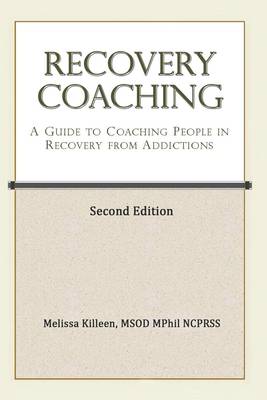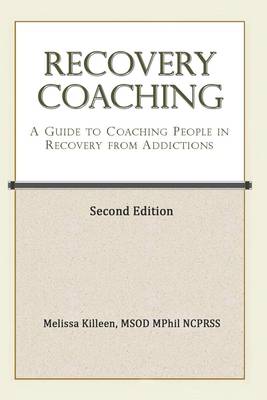
Vous voulez être sûr que vos cadeaux seront sous le sapin de Noël à temps? Nos magasins vous accueillent à bras ouverts. La plupart de nos magasins sont ouverts également les dimanches, vous pouvez vérifier les heures d'ouvertures sur notre site.
- Retrait gratuit dans votre magasin Club
- 7.000.000 titres dans notre catalogue
- Payer en toute sécurité
- Toujours un magasin près de chez vous
Vous voulez être sûr que vos cadeaux seront sous le sapin de Noël à temps? Nos magasins vous accueillent à bras ouverts. La plupart de nos magasins sont ouverts également les dimanches, vous pouvez vérifier les heures d'ouvertures sur notre site.
- Retrait gratuit dans votre magasin Club
- 7.000.0000 titres dans notre catalogue
- Payer en toute sécurité
- Toujours un magasin près de chez vous
30,45 €
+ 60 points
Description
In this new second edition of RECOVERY COACHING- A Guide to Coaching People in Recovery from Addictions -100 new pages of information have been added. New ideas are presented that are aligned with the most up to date, state-of-the-art research on substance misuse models, examples of new recovery support practitioner jobs that are now available for those with recovery coaching experience, discussions about situations that a coach encounters with a patient revived from an opioid overdose and very important information on the medications used in medication-assisted treatment used in the battle against alcohol, opioid or methamphetamine misuse. The second edition demonstrates how using multiple treatment perspectives, including Motivational Interviewing, Harm Reduction, and the Recovery Management Model can be integrated to inform effective recovery coaching. Readers receive sobriety tools that can be used as a guide for the coach to truly support the person in their recovery process. Poignant, personal stories from recovery coaches pinpoint their struggles and solutions fill the book with bonus coaching material. This second edition includes the Adverse Childhood Experiences (ACE) survey as well as a list of what a recovery coach should anticipate in receiving recovery coach supervison. However, the resources do not stop there, the book gives practical business advice on how to set up a successful recovery coaching practice, coaching contracts, various ethical guidelines, assessments, a graph indicating the Approaches to Facilitate the Various Stages of Change, Personal Recovery Plans and a Glossary of terms. 80% of people leaving a substance misuse treatment center will relapse within the first year of discharge. 9 out of 10 of this 80% relapse within the first ninety days after discharge. Working with a recovery coach or a peer recovery support specialist can significantly reduce the likelihood of relapse during this crucial period. Recovery coaching and peer recovery support is the missing link, bridging the gap between an individual leaving a treatment center and maintaining long term sobriety. RECOVERY COACHING- A Guide to Coaching People in Recovery from Addictions gives readers something that has not been done before: a thorough explanation of recovery coaching and peer recovery support. First published in 2013, it was the first book on Recovery Coaching, since the field's inception in the 1990s.This book will be an indispensable resource for the recovery coach or peer support specialist just starting out, the coaching veteran, and any addiction treatment professional.
Spécifications
Parties prenantes
- Auteur(s) :
- Editeur:
Contenu
- Nombre de pages :
- 526
- Langue:
- Anglais
- Collection :
- Tome:
- n° 2
Caractéristiques
- EAN:
- 9781653260669
- Date de parution :
- 15-07-20
- Format:
- Livre broché
- Format numérique:
- Trade paperback (VS)
- Dimensions :
- 152 mm x 229 mm
- Poids :
- 762 g







